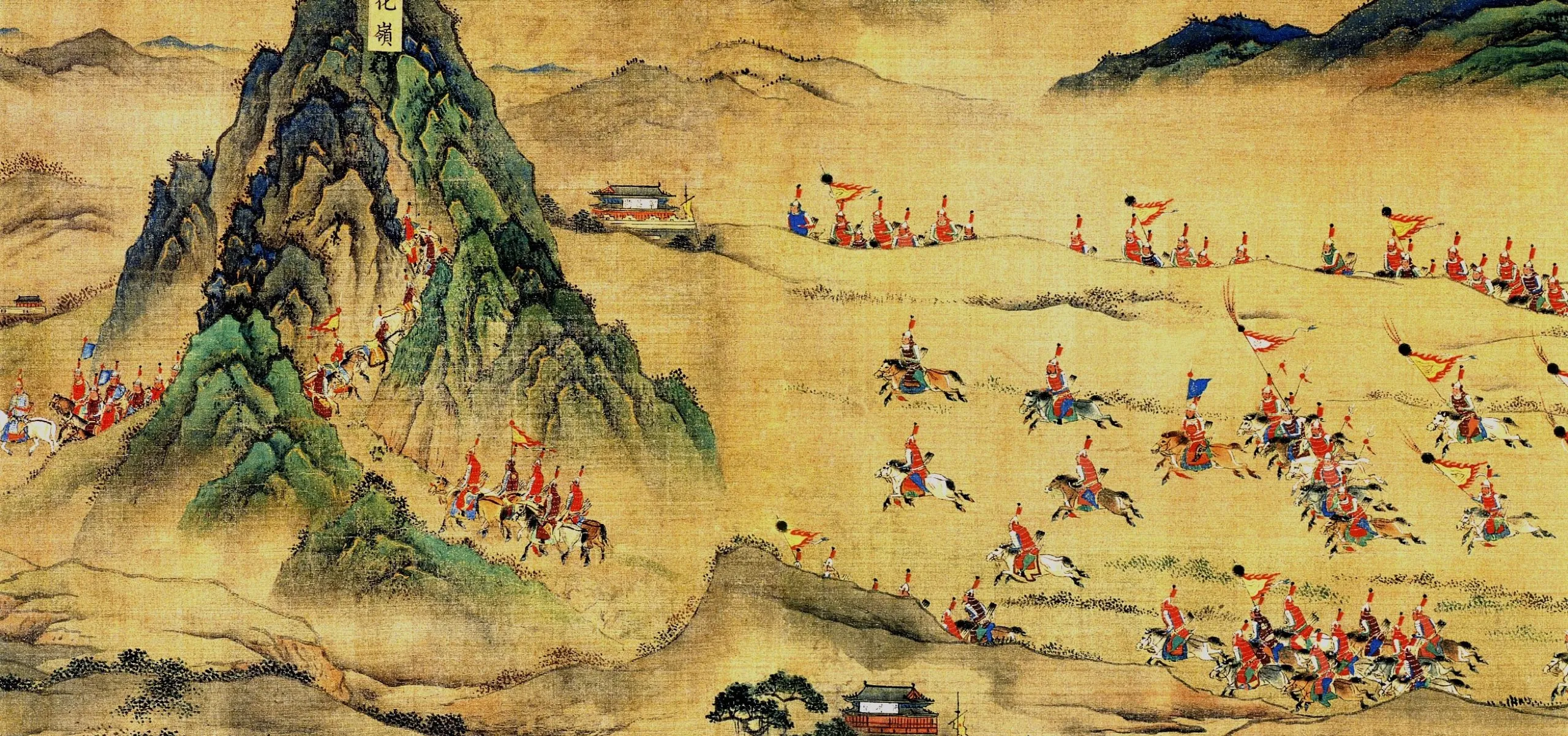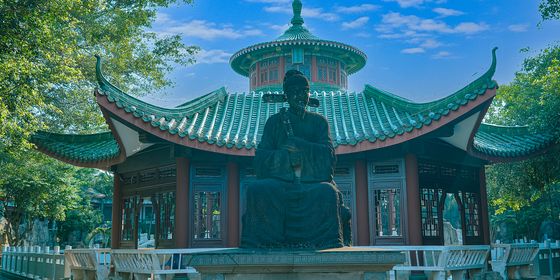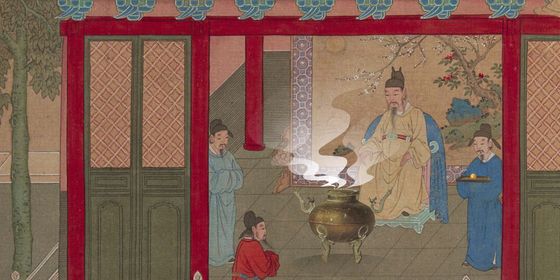Four ancient Chinese poets on human suffering amid turbulence and war
Although enjoying many eras of peace and prosperity, ancient Chinese history is filled with unstable periods and warfare: with local warlords contending for power, dynasties replacing one another, military campaigns expanding territory or defending against invasion, and various internal rebellions. Whether or not these conflicts were justified, common people were always the ones who suffered the most, with their homelands destroyed and family members separated, drafted, or killed. Therefore, anti-war sentiment runs deep in ancient Chinese poetry, often depicting the suffering of ordinary people in wartime while making veiled critiques of those in power.
Cao Cao (曹操), a renowned politician and military strategist, was also an accomplished poet. Many of his poems focused on the social realities of the late Eastern Han dynasty (25 – 220), a period plagued by violent rebellions against the corrupt court and warlords dividing the country. Though a warlord himself, Cao wrote poems about the suffering of the ordinary people as a way to justify his ambition to put an end to the turbulent era. In an excerpt of his poem “Graveyard Song (《蒿里行》), ” Cao described the aftermath of decades of war:
Lice and fleas infest the long-worn armor;
Tens of thousands of civilians perished.
Bones lie bare in the fields,
Not a rooster crow heard within a thousand li.
Out of a hundred, lives one;
The very thought of it breaks my heart.
Even during the heyday of the Tang dynasty (618 – 907), an era of peace in Chinese history, there were still constant military campaigns at the western border as ambitious rulers insisted on expanding the empire. This prompted poet Li Qi (李颀), who lived during the reign of Emperor Xuanzong of Tang, to write “An Ancient Ballad of Joining the Army (《古从军行》)” on the hard life of the soldiers on the frontier:
During the day, soldiers climb the mountain to observe the beacon tower.
At dusk, they lead horses to the Jiaohe River for water.
In the gloomy sand storm, only the chime of the bronze bells can be heard,
And the bitter music of the lute, as if played by the Han princess forced to marry the Huns.
Under the wild clouds that stretch for tends of thousands of li, there’s no trace of a township;
Heavy snowfall shrouds the vast desert.
Wild geese glide through the night sky crying;
Bringing tears to even the barbarians.
They say there’s no retreat as the Jade Pass is still tightly shut;
One has no choice but to follow the general’s chariot onto the battle field.
Year after year, fallen soldiers are buried in the wilderness,
Just so that grapes from the west can be sent to the Han court.
In the poem, Li appeared to be criticizing the Han dynasty (206 BCE – 220 CE) centuries before, but it was actually a thinly veiled criticism of his own empire. To avoid getting into trouble, he added the “historical” element. Li turned out to be right to criticize the endless military ventures, which soon brought disaster to the empire.
In 755, general officer An Lushan (安禄山) rose up against the Tang court, commencing the famous rebellion later named after him. With most armies stationed at the border, the central government soon fell into chaos while Emperor Xuanzong fled the capital. The rebellion lasted for eight years with battles spread across northern China, forcing civilians to migrate south for survival. Among the refugees was one of China’s great poets, Du Fu (杜甫), who experienced first-hand the pain and loss brought by war. He wrote a series of poems on the sufferings of the ordinary people, from military draft to homelessness to his own journey through the war-torn land.
In the following excerpt of the poem “Lament of an Old Man (《垂老别》),” on an old man who was drafted into the army after most of the young men had died in battles, Du lamented the bleak and desolate reality of his times:
War is raging in the countryside;
Beacon fire blazes far and wide.
Grass and trees stink with bodies dead;
With blood the streams and plains turn red.
Where can I find a happy land?
Why do I tarry here and stand?
Why not from my humble home part
And march away with broken heart!
Arguably the most famous saying in ancient China on the cruel nature of war is the last line in one of the “Two Poems in the Year 879 (《己亥岁二首》)” written by late-Tang poet Cao Song (曹松):
Drawn into the war chart are the wealthy land and rivers;
The masses cannot gather firewood or cut grass in peace.
Please don’t talk about leading your army to glory and noble position;
Success of a general is achieved on top of tens of thousands of withered bones.
“Lament of an Old Man” translated by Xu Yuanchong (许渊冲). Other poems translated by Liu Jue.












